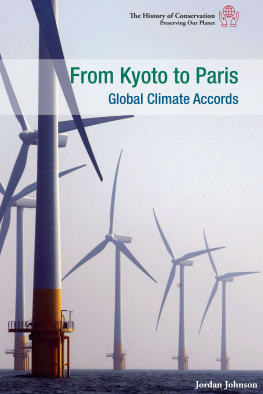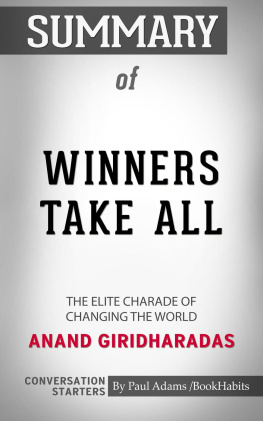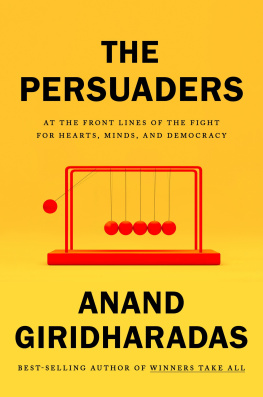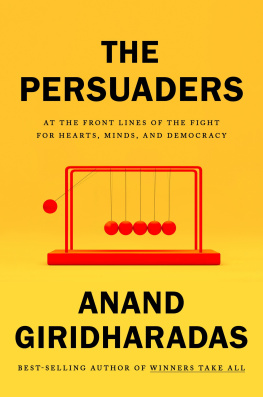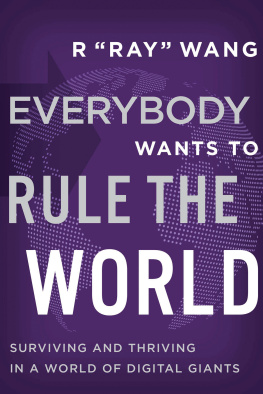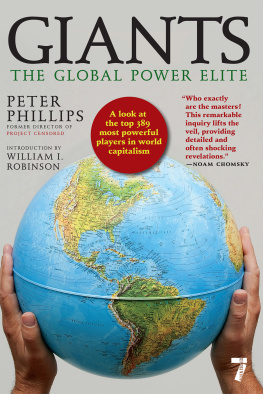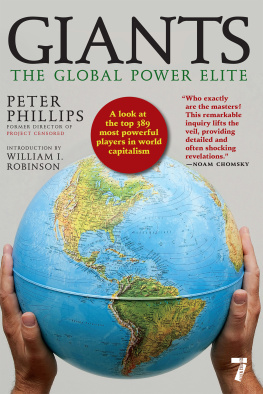Giridharadas - Winners take all : the elite charade of changing the world
Here you can read online Giridharadas - Winners take all : the elite charade of changing the world full text of the book (entire story) in english for free. Download pdf and epub, get meaning, cover and reviews about this ebook. City: Array, year: 2018, publisher: Alfred A. Knopf, genre: Politics. Description of the work, (preface) as well as reviews are available. Best literature library LitArk.com created for fans of good reading and offers a wide selection of genres:
Romance novel
Science fiction
Adventure
Detective
Science
History
Home and family
Prose
Art
Politics
Computer
Non-fiction
Religion
Business
Children
Humor
Choose a favorite category and find really read worthwhile books. Enjoy immersion in the world of imagination, feel the emotions of the characters or learn something new for yourself, make an fascinating discovery.

- Book:Winners take all : the elite charade of changing the world
- Author:
- Publisher:Alfred A. Knopf
- Genre:
- Year:2018
- City:Array
- Rating:4 / 5
- Favourites:Add to favourites
- Your mark:
- 80
- 1
- 2
- 3
- 4
- 5
Winners take all : the elite charade of changing the world: summary, description and annotation
We offer to read an annotation, description, summary or preface (depends on what the author of the book "Winners take all : the elite charade of changing the world" wrote himself). If you haven't found the necessary information about the book — write in the comments, we will try to find it.
Giridharadas: author's other books
Who wrote Winners take all : the elite charade of changing the world? Find out the surname, the name of the author of the book and a list of all author's works by series.
Winners take all : the elite charade of changing the world — read online for free the complete book (whole text) full work
Below is the text of the book, divided by pages. System saving the place of the last page read, allows you to conveniently read the book "Winners take all : the elite charade of changing the world" online for free, without having to search again every time where you left off. Put a bookmark, and you can go to the page where you finished reading at any time.
Font size:
Interval:
Bookmark:
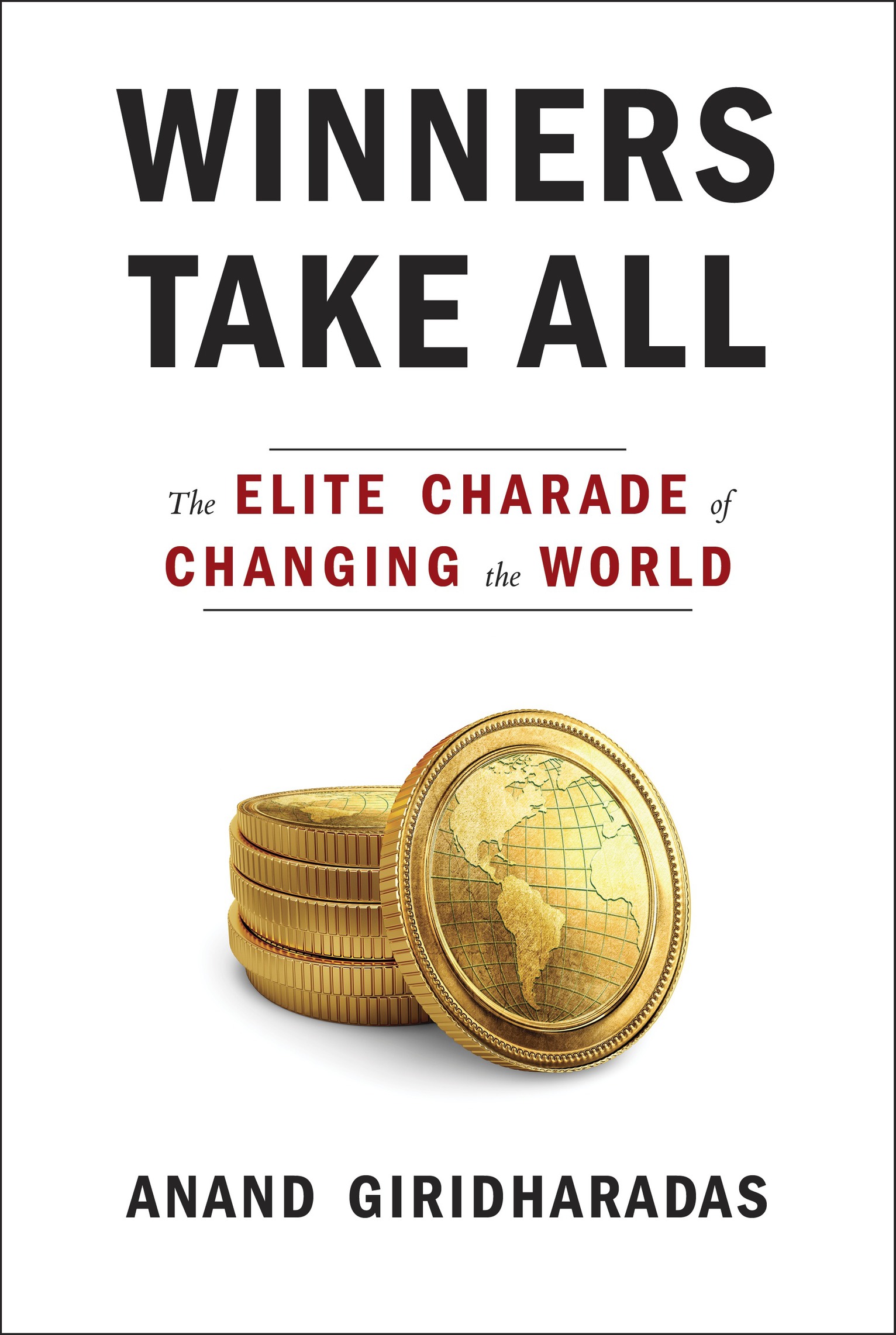
The True American: Murder and Mercy in Texas
India Calling: An Intimate Portrait of a Nations Remaking

THIS IS A BORZOI BOOK PUBLISHED BY ALFRED A . KNOPF
Copyright 2018 by Anand Giridharadas
All rights reserved. Published in the United States by Alfred A. Knopf, a division of Penguin Random House LLC, New York, and distributed in Canada by Random House of Canada, a division of Penguin Random House Canada Limited, Toronto.
www.aaknopf.com
Knopf, Borzoi Books, and the colophon are registered trademarks of Penguin Random House LLC.
Library of Congress Cataloging-in-Publication Data
Names: Giridharadas, Anand, author.
Title: Winners take all : the elite charade of changing the world / by Anand Giridharadas.
Description: New York : Alfred A. Knopf, 2018. | A Borzoi book. | Includes bibliographical references and index.
Identifiers: LCCN 2017045477| ISBN 9780451493248 (hardcover) | ISBN 9780451493255 (ebook)
Subjects: LCSH: Social changeUnited States. | United StatesSocial conditions1980 | Elite (Social sciences)United States.
Classification: LCC HM831 .G477 2018 | DDC 303.40973dc23
LC record available at https://lccn.loc.gov/2017045477
Ebook ISBN9780451493255
Cover images by Spantomoda and AlexRoz, both Shutterstock
Cover design by John Vorhees
v5.3.2
ep
For Orion and Zora,
and the more than 300,000 children born today, with hope that you will see through our illusions
I sit on a mans back choking him and making him carry me, and yet assure myself and others that I am sorry for him and wish to lighten his load by all means possibleexcept by getting off his back.
L EO T OLSTOY, W RITINGS ON C IVIL D ISOBEDIENCE AND N ONVIOLENCE
Social change is not a project that one group of people carries out for the benefit of another.
L ETTER TO B AH FROM THE U NIVERSAL H OUSE OF J USTICE IN H AIFA, I SRAEL
All around us in America is the clank-clank-clank of the newin our companies and economy, our neighborhoods and schools, our technologies and social fabric. But these novelties have failed to translate into broadly shared progress and the betterment of our overall civilization. American scientists make the most important discoveries in medicine and genetics and publish more biomedical research than those of any other countrybut the average Americans health remains worse and slower-improving than that of peers in other rich countries, and in certain years life expectancy actually declines. American inventors create astonishing new ways to learn thanks to the power of video and the Internet, many of them free of chargebut the average twelfth grader tests more poorly in reading today than in 1992. The country has had a culinary renaissance, as one publication puts it, one farmers market and Whole Foods at a timebut it has failed to improve the nutrition of most people, with the incidence of obesity and related conditions rising over time. The tools for becoming an entrepreneur appear to be more accessible than ever, for the student who learns coding online or the Uber driverbut the share of young people who own a business has fallen by two-thirds since the 1980s. America has birthed a wildly successful online book superstore called Amazon, and another company, Google, has scanned more than twenty-five million books for public usebut illiteracy has remained stubbornly in place and the fraction of Americans who read at least one work of literature a year has dropped by almost a quarter in recent decades. The government has more data at its disposal and more ways of talking and listening to citizensbut only one-quarter as many people find it trustworthy as did in the tempestuous 1960s.
A successful society is a progress machine. It takes in the raw material of innovations and produces broad human advancement. Americas machine is broken. When the fruits of change have fallen on the United States in recent decades, the very fortunate have basketed almost all of them. For instance, the average pretax income of the top tenth of Americans has doubled since 1980, that of the top 1 percent has more than tripled, and that of the top 0.001 percent has risen more than sevenfoldeven as the average pretax income of the bottom half of Americans has stayed almost precisely the same. These familiar figures amount to three and a half decades worth of wondrous, head-spinning change with zero impact on the average pay of 117 million Americans. Meanwhile, the opportunity to get ahead has been transformed from a shared reality to a perquisite of already being ahead. Among Americans born in 1940, those raised at the top of the upper middle class and the bottom of the lower middle class shared a roughly 90 percent chance of realizing the so-called American dream of ending up better off than their parents. Among Americans born in 1984 and maturing into adulthood today, the new reality is split-screen. Those raised near the top of the income ladder now have a 70 percent chance of realizing the dream. Meanwhile, those close to the bottom, more in need of elevation, have a 35 percent chance of climbing above their parents station. And it is not only progress and money that the fortunate monopolize: Rich American men, who tend to live longer than the average citizens of any other country, now live fifteen years longer than poor American men, who endure only as long as men in Sudan and Pakistan.
Thus many millions of Americans, on the left and right, feel one thing in common: that the game is rigged against people like them. Perhaps this is why we hear constant condemnation of the system, for it is the system that people expect to turn fortuitous developments into societal progress. Instead, the systemin America and around the worldhas been organized to siphon the gains from innovation upward, such that the fortunes of the worlds billionaires now grow at more than double the pace of everyone elses, and the top 10 percent of humanity have come to hold 90 percent of the planets wealth. It is no wonder that the American voting publiclike other publics around the worldhas turned more resentful and suspicious in recent years, embracing populist movements on the left and right, bringing socialism and nationalism into the center of political life in a way that once seemed unthinkable, and succumbing to all manner of conspiracy theory and fake news. There is a spreading recognition, on both sides of the ideological divide, that the system is broken and has to change.
Some elites faced with this kind of gathering anger have hidden behind walls and gates and on landed estates, emerging only to try to seize even greater political power to protect themselves against the mob. But in recent years a great many fortunate people have also tried something else, something both laudable and self-serving: They have tried to help by taking ownership of the problem.
All around us, the winners in our highly inequitable status quo declare themselves partisans of change. They know the problem, and they want to be part of the solution. Actually, they want to lead the search for solutions. They believe that their solutions deserve to be at the forefront of social change. They may join or support movements initiated by ordinary people looking to fix aspects of their society. More often, though, these elites start initiatives of their own, taking on social change as though it were just another stock in their portfolio or corporation to restructure. Because they are in charge of these attempts at social change, the attempts naturally reflect their biases.
Font size:
Interval:
Bookmark:
Similar books «Winners take all : the elite charade of changing the world»
Look at similar books to Winners take all : the elite charade of changing the world. We have selected literature similar in name and meaning in the hope of providing readers with more options to find new, interesting, not yet read works.
Discussion, reviews of the book Winners take all : the elite charade of changing the world and just readers' own opinions. Leave your comments, write what you think about the work, its meaning or the main characters. Specify what exactly you liked and what you didn't like, and why you think so.


